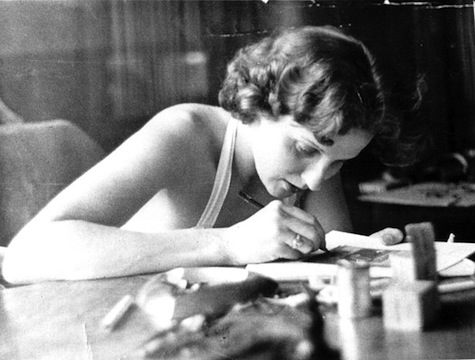“What makes for the most effective presentation and treatment of female characters in fantasy fiction?”
This is the text, more or less, of a question someone asked me recently. It’s a question for which I’ve been having some difficulty formulating an answer, because to me that’s like asking, What makes for the most effective presentation and treatment of human characters in fantasy fiction? It is a question so broad it has no effective answer, because it essentially asks Well, what are women like? as though that were one whit less dependent on context, and socialisation, and individual experiences of the world than Well, what are Germans like? What are South Africans like? What are Brazilians like? What are Americans like?
And we must complicate the category of “female,” as well. Not all people who are women in their lives were female-assigned at birth, nor are all people born with bodies that are easily assigned within the socially-extant definitions of “male” or “female.” Historically, there are women who have stepped outside their societies’ traditional gender roles, such as the sworn virgins of Albania or women like Hannah Snell. There are societies whose gender roles do not map easily to Western European constructions of gender and gendered behaviour, such as the hunter-gatherer !Kung San of the Southern Kalahari. There are subaltern communities and histories of women, created and maintained by women, who may interpret events and their social worlds differently than the men around them (see, as one classic example in a science fiction story, James Tiptree Jr.’s “The Women Men Don’t See”)—and these communities, histories, and understandings, will vary by class and geography, by cultural background and social context, by religious affiliation and ethnic associations.
There is no one true effective way to write, or to write about, human beings; likewise there isn’t any single true effective way to write about human beings assigned to the class called female. And in a fantasy setting, it is possible to throw out everything you think you know about history, and build new societies rigorously from the ground up—if, that is, you want to.
One of the major contributing factors in poor representations of women in fiction, however, is the denial, suppression, or rendering-invisible of their subjectivity. “Subjectivity,” to quote from Wikipedia’s formulation, “is the condition of being a subject”(emphasis mine); that is to say, of possessing perspectives, experiences, feelings, beliefs, and desires. Subjectivity is a key component of selfhood: the subject acts (or thinks, or feels); the object is acted upon, or thought or felt about.
Often, we talk about subjectivity and agency in the same breath. They are functionally similar in narratives; and agency requires subjectivity; but they are not entirely the same.
“But,” you might say, “these female characters over here think and feel and act; there are thinking verbs and acting verbs and everything: why are you still criticising them?”
Because subjectivity and believable subjectivity are different things, and depend on context. Because there is more than one failure mode for writing characters, and it is entirely possible for a character to have subjectivity and agency both and still play into a collection of stereotypes. Because often the writer thinks that they have given the female characters—sometimes there is only one female character—subjectivity and agency, but they have written the character with subjectivity and agency only so long as those qualities revolve around a male character. Because the world is more complicated that that, and the writer has failed to think things through.
Because a lot of us have seen multiple poor representations of female characters—as witness this conversation on Twitter—from (mostly*) male writers who are often critically well-received and in publishing terms, financially successful, and it gets old and tiring.
*Mostly. Not every bloke is bad at writing women—see, for example, Charles Stross, Max Gladstone, and Scott Lynch, among others -and sometimes women writers also reproduce tired old thoughtless tropes.
To quote Junot Díaz, speaking at Word Up Bookshop in 2012:
“Every time I’m teaching boys to write, I read their women to them, and I’m like, “Yo, you think this is good writing?” These motherfuckers attack each other over cliché lines but they won’t attack each other over these toxic representations of women that they have inherited… their sexist shorthand, they think that is observation. They think that their sexist distortions are insight. And if you’re in a writing program and you say to a guy that their characters are sexist, this guy, it’s like you said they fucking love Hitler. They will fight tooth and nail because they want to preserve this really vicious sexism in the art because that is what they have been taught.”
So, “What makes for the most effective presentation and treatment of female characters in fantasy fiction?”
More empathy. More imagination. Less sexist shorthand.
It’s that simple.
It’s that hard.
Liz Bourke is a cranky person who reads books. Her blog. Her Twitter.










